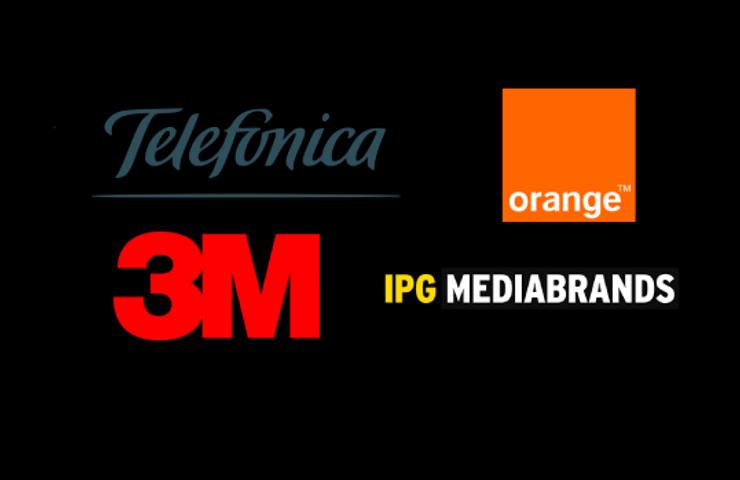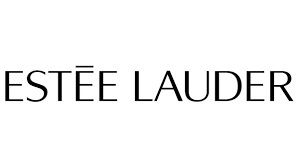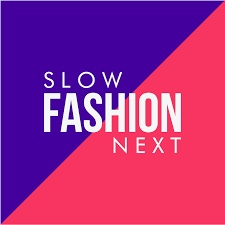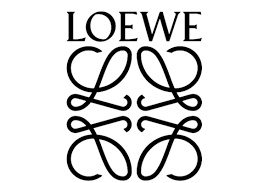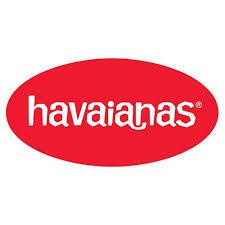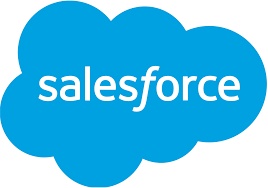
Master in Market Research & Consumer Behavior
- Home
- The Programs
- Masters
- Master In Market Research & Consumer Behavior
LEVERAGE MARKET AND CONSUMER INSIGHTS FOR BUSINESS SUCCESS
The Master in Market Research & Consumer Behavior is an innovative program designed to delve into neuromarketing—the consumer psyche—uncovering and interpreting the motivations behind their behaviors. This program integrates business, marketing, data analytics and consumer behavior studies to empower you to obtain deep insights through both quantitative and qualitative market research. At the same time, you’ll learn to develop informed business strategies and actionable plans that meet and anticipate current and future market demands.
Over the course of 10 months, this program guides you through an intensive educational journey to prepare you for a specialized career in market research and consumer behavior.
- The journey begins with the Common Core Period, where you’ll study alongside other students in marketing, communication and sales. You’ll build your foundational skills—enhancing your analytical, creative and digital capabilities—while networking with a diverse group of peers.
- As part of your development, you can pursue additional certifications from recognized digital leaders such as Google or Salesforce, as well as the IE University Sustainability Certificate, crafted by our globally acclaimed faculty.
- Experience is crucial for real-world impact. Participate in our Global Immersion Week or Social Impact Week for firsthand experiences with top industry players in international hubs such as London, Ghana, Amsterdam and South Africa.
- Following the main program, you have the option to engage in a three-month Career Sector Track, where you can further specialize your expertise in areas such as Marketing and Tech or Marketing for Consumer Goods, Luxury and Fashion.
*The 2025-2026 intake starts on September 8th.

YOUR PROGRAM, PART OF THE STAGE EXPERIENCE
By studying a program in Marketing, Branding & Sales, you’ll be a part of something bigger than just your studies, something we call The Stage. All programs will benefit from The Stage experience, which includes a Common Core Period with fundamental courses and optional program ad-ons such as: certifications, international experiences, career sector track extension. The Stage ensures that you not only create lifetime friendships and professional networks but will also have a well-rounded education that prepares you for the next stage: a successful career after graduation.

THE STAGE AWAITS
The Stage will form an integral part of your master’s experience at IE University. Accompanying you throughout your program, this shared experience allows you to explore the fundamentals of Marketing, Branding & Sales alongside peers from other programs, all while you make connections, discover new ways to engage your audience and build essential skills to help you reach center stage in your own life.

MASTER IN STRATEGIC MARKETING AND COMMUNICATION
We are now in the era of co-creation, where managing the needs of stakeholders and clients is simply not enough. The multidimensional role of the consumer now requires new forms of engagement, open innovation and brand co-creation in terms of both strategy and actual implementation. This program will give you the tools to successfully guide businesses through the new challenges posed in today’s dynamic, digital world.
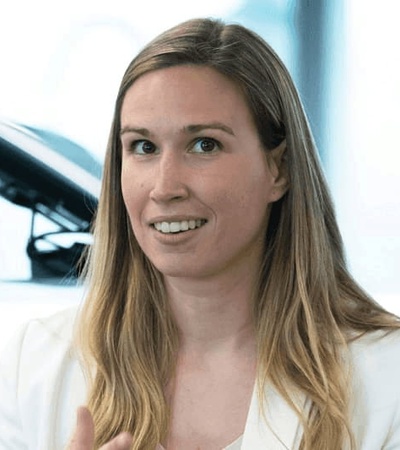
MASTER IN DIGITAL MARKETING
The fast pace of digital disruption has forced traditional marketing channels to step aside and make room for their online alternatives: smartphones, social media, video and email marketing. The Master in Digital Marketing trains you to manage the demands of the new digital era. You will learn how to launch marketing campaigns by creating and managing digital content, while simultaneously gaining an in-depth understanding of the power of social media, influencer marketing and e-commerce as a way to boost sales of global products and services.

MASTER IN MARKET RESEARCH & CONSUMER BEHAVIOR
The Master in Market Research & Consumer Behavior is a unique program that trains professionals to get inside consumers' minds in order to uncover and understand the motivations behind their behavior. This program is a combination of business, marketing, data analytics and consumer behavior, allowing you to gain unique customer insights into the quantitative and qualitative side of market research. This knowledge is critical to guide business strategies and actionable plans to address the market's wants and needs of today and anticipate those of tomorrow.

MASTER IN CREATIVE DIRECTION, CONTENT & BRANDING
Bridge the gap between creativity and management. This program will prepare you to create and lead content and visual projects that engage users and audiences. The new digital economy needs creative professionals who are able to master the latest media strategies, understand and leverage the power of storytelling and content production, and align compelling content and visuals to a brand's communication needs.

MASTER IN CUSTOMER EXPERIENCE & INNOVATION
We live in the total experience economy. How do you create seamless and synchronized customer experiences across products, services, organizations and businesses? This master’s program takes a close look at human-centered design, service design, as well as product and experience design, in order to find innovative ways to shape customers’ experiences and deliver added value to them.
BOOK A CALL WITH ME
CHAT WITH ME
WHO IS THE MASTER IN MARKET RESEARCH & CONSUMER BEHAVIOR FOR?
IT'S FOR INDIVIDUALS WHO...
are motivated by consumer behavior, psychology and the data analytics side of market research, and wish to gain in-depth insights to achieve a more holistic understanding of consumer needs.
ARE LOOKING FOR...
a program that combines a variety of skills across a range of areas, including consumer psychology, insights, analytics and marketing intelligence. As a result, they want to understand the consumer’s behavior and leverage this knowledge to drive companies forward. A student may, in the future, work as a qualitative researcher, ethnographer, insights and analytics manager, data scientist, behavioral scientist, product/business analytics/market intelligence expert or many more.
KEY AREAS OF THE MASTER IN MARKET RESEARCH & CONSUMER BEHAVIOR
COMMON CORE PERIOD
BUSINESS MARKETING & STRATEGY
CONSUMER INSIGHTS & ANALYTICS
CONSUMER PSYCHOLOGY & BEHAVIOR
ELECTIVES
PROFESSIONAL SKILLS
FROM THE ACADEMIC DIRECTOR
Jaime Veiga, explains in-depth the Master in Research & Consumer Behavior
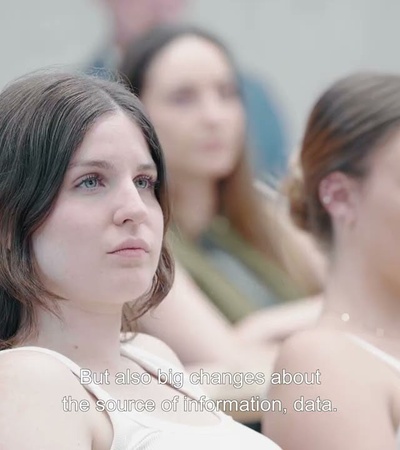
REASONS TO STUDY THE MASTER IN MARKET RESEARCH & CONSUMER BEHAVIOR
IE University molds students into future-forward and well-rounded professionals, using methodologies that put innovation and employability at the forefront.
- 01.
SKILLS TO SET YOU APART
Become an expert in areas that employers are seeking in the new digital economy, such as consumer psychology and behavior, marketing intelligence, consumer insights and analytics.
- 02.
LEARN FROM THE REAL PIONEERS IN MARKET RESEARCH AND INSIGHTS
Our faculty is made up of a diverse group of academics and professionals. As mavericks in their corresponding fields, they bring real-world expertise into the classroom.
- 03.
LEARN BY DOING
You’ll work on practical projects to generate and implement insights-based innovative ideas and transformation strategies from the very beginning. You’ll continue to apply what you learn throughout the program.
- 04.
CAREER-FOCUSED PROGRAM
Businesses desperately need professionals who can gather marketing intelligence to understand how and why consumers make decisions in today’s tech-driven world and address them with actionable plans.
- 05.
Big Data and machine learning will bring data collection to everyone's fingertips
So the organic evolution is for Market Reserachers to focus on the “why” of human behavior.
- 06.
Only 39% of marketing executives say they are able to understand their customers' cross-device behaviors. - Hubspot
- 07.
Organizations that leverage customer behavioral insights outperform competitors by 85% in sales growth. - McKinsey
FLexibility in your Career Path
Choosing the right program for you can be difficult. We’re here to guide you in your Marketing, Communication & Sales career journey from the start with the support of our Recruiting & Admissions team who will closely review your background, skills and future goals to ensure you choose the right program. All our full-time programs begin with a two-month Common Core Period, designed to give you the key foundations to succeed in this career path.
However, if after starting the program and completing this Common Core Period you are interested in changing to another Marketing, Communication & Sales program, you may switch programs after having a meeting with the Academic Program Direction team to validate this change and understand how it may affect your future career. Please be aware that program changes are dependent on availability.

STUDENTS' PROFILES
- by Academic Background (%)BusinessSocial SciencesHospitalityHumanitiesEconomicsScienceEngineering
- by Region (%)EuropeSpainLatin AmericaNorth AmericaMiddle EastAsia Pacific
- by Industry (%)Consumer Products & RetailHealthcare & EducationConsulting & Industrial ProductsMarketing / Media / TechnologyFashion / Real estateBanking / Insurance / Financial ServicesAerospace / Chemical / Energy & UtilitiesTourism & Hospitality
- 40nationalities represented in class
- 80%percent of international students in class
- 70000+IE University Alumni in your network to help you get where you want to go
PROGRAM STRUCTURE OF THE MASTER IN MARKET RESEARCH & CONSUMER BEHAVIOR
- Description
- PREPROGRAM
- COMMON CORE PERIOD(SEPT-OCT)
- TERMS
- Consulting Project
- BEYOND THE PROGRAM
- core subjects
- FIRST TERMNOVEMBER-DECEMBER
- SECOND TERMJANUARY-MARCH
- THIRD TERMAPRIL-JULY
- Academic Essentials
- Program extras
- Career Sector Tracks
The Master in Market Research & Consumer Behavior is designed to help you build an understanding of strategic and analytical skills, psychology and buyer behavior. The program begins with a Common Core Period, where you’ll study alongside like-minded thinkers from our other Marketing, Communication & Sales programs. This design gives you a unique networking opportunity, as well as deciding if you’re on the right path for your personal and professional goals. Following the Common Core Period, this program focuses on four main pillars:

Business marketing & strategy
Learn how consumer insights drive impactful business decisions.

Consumer insights & analytics
Tackle the qualitative and quantitative tools needed to gather data.

Consumer psychology & behavior
Understand how consumers think and behave using ethnography, neuromarketing and other concepts.

Professional skills
Learn teamwork, effective communication and career management.

Consulting projects
Produce and present consulting group projects to companies such as Nielsen, Kantar, and Telefonica.
EXCEL TOOLS FOR MARCOM
This two-session pre-program course builds the foundations of working with data on Excel. Once you've completed this pre-program, you will be able to confidently use your new data-driven problem-solving skills and navigate the technical world of Excel.
Working in a team environment, you and your peers will develop a marketing plan for a real company based on a real-world case. This will be considered your final master’s project, in which you take on board all of your knowledge from the program and put into practice the skills you have honed. In the past years, we have collaborated with The Coca-Cola Company and IKEA.
The Kantar Business Challenge
KANTAR MARKETING CONSULTING PROJECT
Dive into a 4-day real-world marketing case assigned to you by execs at Kantar, and develop impactful recommendations to present to a panel of experts.
The Market Research Agency Challenge
NIELSEN MARKET RESEARCH CONSULTING PROJECT
Over the course of 6 weeks, you and your team will work with Nielsen to address a real client situation by conducting market research, discovering consumer insights, and presenting to the real client at the end.
The Integration Challenge
THE INTEGRATION CONSULTING PROJECT
This final 8-week project allows you to integrate all the knowledge and skills you’ve mastered in the program to develop a unique solution to a real-world challenge provided by the client. You will work as a real consulting team; each group will work directly with the client and final presentations are made directly to them. In the past, some of our clients have been: Telefonica, Orange, 3M and Mediabrand.
CAREER DISCOVERY ACCELERATOR
To help you progress with your individual career goals, IE Talent & Careers offer students exclusive tools and resources throughout the duration of your program. The IE Talent & Careers Center also lead a series of classes to prepare you for today’s competitive job market.
IMPACT SKILLS ACCELERATOR
Throughout the duration of the program, a series of key skills workshops led by experienced professors will enhance your workplace skills. These workshops provide practical resources, techniques, and insights to help you overcome obstacles and make informed decisions, supporting you in gaining an edge in the competitive employment landscape.
The Impact Skills Accelerator ensures students develop and master essential competences and skills critical for success and specifically demanded in today's dynamic job market. We refer to these as impact skills, which are those that enable students to really make an difference at work and in their personal lives and that they take with them throughout their careers, undeterred by any social, digital, or economic shifts.
- AI for Productivity
- Critical Thinking
- Self-Transformation
- Storytelling and Public Speaking
- Creative Thinking
- High-Performance Teambuilding I
- High-Performance Teambuilding II
- Problem Solving
- Project Management
- Power and Influence
This course delves into the realm of visual communication, emphasizing the importance of constructing compelling visual compositions and presentations. Students will explore how elements such as type, image, color, and space combine to create effective visual systems. Learning objectives include presenting information effectively, conveying emotion to target audiences through visual elements, selecting visual assets aligned with creative briefs, and constructing adaptable visual systems for various communication channels.
This course blends lectures and practical exercises to deepen understanding of Strategic Marketing and Branding. Lectures introduce key concepts with real-world examples, while exercises offer hands-on application. Students learn to develop effective strategies by leveraging analytical skills and market insights, covering brand definition, management, models, dilemmas, and the branding process. Emphasizing integration with business strategy, the course addresses the 5 C's, STP process, and 4 P's of marketing.
This workshop introduces the concept of well-being and its significance in thriving personally and contributing positively to communities. Students will develop skills for a better life and invest in becoming their best selves, focusing on presence, curiosity, and reflection to align with core values. Emphasis is placed on fostering a safe environment for open dialogue and exploration of well-being practices. Key objectives include introducing core values of well-being, increasing awareness of the mind-body-soul connection, fostering a healthy self-perception, motivating personalized action plans, and cultivating an authentic culture of well-being.
This course equips graduate students with advanced communication skills for professional and personal success. Covering persuasive storytelling, participants learn to effectively convey ideas, engage stakeholders, and inspire action through public speaking. Key objectives include clear communication, storytelling mastery, non-verbal enhancement, audience tailoring, active listening, stakeholder confidence, and personal growth reflection.
The internet landscape is evolving rapidly with various social media platforms, reshaping brand-consumer interactions. This course explores the dynamic social media ecosystem, stressing the importance of grasping social dynamics and technology. Through case studies and practical experience, students learn social business strategies, tools, and key performance indicators driving web 2.0 evolution. The goal is to equip students to create and execute comprehensive social media strategies, emphasizing understanding social consumer principles and best practices. By the course's end, students comprehend the business impact of social media, develop strategic plans, and define realistic objectives and indicators for their strategies.
Project management is essential in modern organizations, covering various activities like product development, technology implementation, marketing, and mergers. Two main methodologies, classic and agile, offer distinct approaches, each with strengths and limitations. This workshop offers hands-on experience in project planning and control, stressing the importance of adapting managerial approaches to the project type. Participants will learn agile Scrum methodology and classic techniques including work breakdown structures, Gantt charts, resource management, budgeting, and progress monitoring. By understanding the pros and cons of both methodologies, managers can effectively select the most suitable practices for different project scenarios.
This course focuses on customer experience within human-centered design and design thinking frameworks, prioritizing empathy and positive interactions. Participants learn to understand customer needs, create journey maps, gather feedback, and design initiatives from the customer's perspective. Key topics include emotional connection, customer-centric culture, and measuring experience metrics.
Marketing and Communication Managers play a critical role within companies' Leadership Teams, particularly in today's rapidly evolving business landscape. They are integral to financial viability plans, as their departments shape the marketing mix to enhance customer loyalty, drive sales, and optimize costs. Moreover, they assist in minimizing risks and informing strategic decisions. To effectively contribute, Marketing and Communication Managers must grasp key financial concepts and develop financial acumen. This understanding enables them to generate value in their recommendations, aligning consumer perspectives with company objectives and operations.
This course explores identity, exclusion, and inclusion in everyday society, emphasizing their importance in business for employee recruitment, engagement, and retention, as well as for overall profitability. While diversity and inclusion are often used interchangeably, the workshop highlights their distinctions and impact on individuals and organizations. Participants will learn practical strategies and skills to implement diversity and inclusion initiatives effectively. By the course's end, students should grasp the differences between diversity, equity, and inclusion, understand their significance in personal and professional spheres, and be able to apply authentic diversity and inclusion strategies.
This highly interactive workshop emphasizes problem-driven thinking as essential for success across various ventures, including startups, corporations, and social enterprises. Participants engage in action-oriented, hands-on activities, fostering idea exchange, reflection, and experiential learning. By the workshop's end, attendees will recognize the entrepreneurial mindset, understand the role of value and creativity in opportunity identification, and leverage entrepreneurship to create sustainable and social impact.
This class covers market research fundamentals and consumer behavior concepts essential for insight practitioners. It explores qualitative, quantitative, and neuromarketing methods, alongside insights into decision-making processes and behavioral economics. Emphasizing data-driven insights, students learn to identify market information, understand key consumer demographics, and develop strategies for business growth.
Negotiations are akin to theater productions, where understanding the characters, scripts, and behind-the-scenes dynamics is crucial for success. Transactional Emotional Intelligence (TEI) sessions aim to equip participants with the interpersonal skills needed to navigate negotiations effectively, fostering positive outcomes and satisfaction for all parties involved. The course covers various negotiation concepts, including collaborative and competitive approaches, empowering students to confidently tackle complex negotiations using the tools learned throughout the sessions.
This workshop addresses the shift towards more horizontal and team-centric organizational structures, emphasizing the importance of high-performance teams in today's workplace. Participants will gain awareness of their own preferences and practice strategies for building and sustaining successful teams. The focus is on cultivating a collective mindset and implementing self-healing strategies to address common dysfunctions. Key objectives include understanding the benefits of teamwork for decision-making and problem-solving, learning principles of group dynamics and management techniques, and developing people skills to navigate challenges within work teams.
This course explores the complexities of cross-cultural communication in today's interconnected world. While physical travel has become routine, effective communication across borders remains challenging. Using real-life examples from global business hubs like Mumbai, Tokyo, and New York, the course unpacks the diverse elements of culture. Participants will learn theoretical concepts and engage in hands-on exercises to develop intercultural competence. Key objectives include identifying implicit communication norms, understanding cultural specificity, decoding different cultural contexts, and fostering empathy to bridge communication gaps.
This course equips students with essential theoretical and practical skills for Business Development & Sales in Marketing and Communication. It enhances strategic thinking and business acumen, preparing students for post-master's success. Students gain skills for global business development, explore decision-making psychology, and learn effective relationship-building strategies. Additionally, the course covers sales methodologies, customer journey impact, sales technology, and key analytics.
This course focuses on providing robust statistical knowledge with the aim of addressing and tackling different research questions based on data analysis. A key element is understanding the role statistics play in managerial decision-making. Descriptive and inferential statistics will be introduced and applied to illustrate how sample data can be used to make decisions, predictions or other generalizations about larger populations.The course will help students grasp the theory behind some fundamental statistical techniques. At the same time, we’ll see how a widely used software such as Excel can be used to undertake the computation required by statistical analysis. More importantly, the course will build the ability to interpret results and outputs.
This course teaches students the process of using digital technologies to create new — or modify existing — business processes, culture, and customer While the methodology has been around for a while, the use of panels remains key in market research. It’s been used consistently since its creation by Arthur Connell Nielsen, and continuously adapted to changes in the industry and new technologies.
This course will focus on the methodological description of panels’ Strengths, Weaknesses, Opportunities and Threats (SWOT). Students will conduct SWOT analyses of how panels fit into the market research environment, before exploring practical descriptions and how to present panel results. A focus on the main industry panels includes retail panels, consumer panels, audience panels (TV and radio), and internet panels. to meet changing business and market requirements.
The course objectives are:
- Comprehensive understanding of panel methodology, applications, and SWOT analysis.
- Deep knowledge of each panel type, where they’re used, their limitations, the information they offer, future trends, etc.
- Practical experience working with each of the main panels in current use.
This is an immersive class designed to equip students with the skills to gather and analyze non-numeric data. Delving into techniques such as interviews, focus groups, and ethnography, participants learn to extract meaningful insights from human behaviors and social phenomena. The course emphasizes critical thinking and the ethical dimensions of research, preparing students to conduct in-depth studies across diverse fields. Through practical assignments, students become adept at crafting research questions and developing rich, contextual understandings.
This class offers a comprehensive understanding of statistical analysis and numerical data interpretation.
This course covers the fundamentals of research design, hypothesis testing, and data collection techniques, ensuring students can conduct rigorous empirical studies. With a focus on practical application, the class guides participants through using statistical software to analyze datasets, interpret results, and make data-driven decisions. The curriculum bridges theory with real-world application, preparing students for analytical roles in various sectors.
This course gives students a solid understanding of core cognitive, affective, and social patterns of behavior. It also encourages exploration of how these components serve as building blocks for consumer purchasing patterns, product adoption, brand loyalty, and attitude formation. More generally, it examines reasoning, problem-solving and decision-making in a consumer context.
Extracted data isn’t always properly prepared or structured for analysis. It must therefore be checked, cleaned up, transformed, segmented, and filtered multiple times by the analyst. This data preparation phase covers every method of handling raw data in order to build up the data set, before moving on to the statistical analysis or modeling stage. The better prepared the data, and the more skilled at data manipulation the analyst, the more self-sufficient they become. The result will be better and faster analysis, producing more valuable results.This course provides students with the basic knowledge required to use leading statistical software, which can then be used to perform useful data analysis. It covers an extensive set of tasks that are often necessary during the data preparation phase: accessing and coding data, statistical pre-adjustments such as weighting, and scale transformations.
Recently, organizations have aligned technology and business to adapt to a complex, challenging market. Companies turn to their business processes to differentiate themselves in today’s competitive market, where many organizations offer similar products and use equivalent technologies. Using data and algorithms also create profitable products, services and decisions, allowing organizations to stand out from the rest. Creating these competitive advantages is key to the success of a company, so this course will be beneficial to you in the coming years. This course allows you to unlock the doors to capturing and analyzing customer behavior based on both internal and external sources of big data.
Companies mainly focus on ROI and increased sales—they want to know which product launch, ad campaign or promotion will boost their top and bottom lines the most. This course will expose you to a variety of observational methods, guaranteeing that you can make such future decisions effectively. You will focus on qualitative and quantitative observational research methods that are employed from the business question through to the final deployment of the insights you have gained. In this course you will also:
- Learn to design and execute an observational research study.
- Analyze information, generate insights and summarize them.
- Practice with case studies and examples from the industry.
This module comprises a “microlaunch”—an interactive marketing simulation which brings market research teachings to life. Moving from theory to practice, students will apply all the qualitative and quantitative tools and understanding they have acquired from the preceding lectures.
This course will enable you to understand core cognitive, affective and social patterns of behavior that commonly impact consumer choices. Understanding these components will unlock doors to exploring consumer purchasing patterns, product adoption, brand loyalty and attitude formation. You will also develop your soft skills, including reasoning, problem solving and decision-making in a consumer context, to become a well-rounded individual.
Web mining and social media monitoring allows you to collect and use all the available information to explain market and consumer behavior. This course will equip you with an understanding of technological architecture, software, and the various methodologies that are widely used. Focusing on concepts and practical applications, rather than IT intricacies and complex theories, helps keep the course accessible and enjoyable. This course will allow you to:
- Understand business intelligence and how to use it effectively, independent of technology.
- Conceptualize why data sources are important and learn how to manage them alongside big data concepts.
- Navigate web mining and understand how it can be used to interact with potential customers.
- Improve your reasoning skills and make more effective decisions.
- Collect analytics from social media.
- Analyze questions in the context of web mining and social media monitoring.
This course will provide you with a working knowledge of the tools and concepts that guide successful product strategy decisions. Alongside developing your analytical and writing skills, you will be able to create a competitive advantage through an organization’s product portfolio. You will also study the importance of a product as an integrated and coherent component of the marketing process. To develop your skills for this fast-paced market, you will hone in on specific problems that marketers commonly encounter, including:
- Adding new products to brands.
- Identifying key competitive products.
- Handling of product portfolios.
- Achieving brand loyalty through signature products.
- Market luxury products.
- Products and profit.
In the current global market, corporate budgets are restricted, so it’s important to use resources effectively. To increase the return on investment of marketing campaigns, marketing researchers apply a variety of methodologies to evaluate the effectiveness of their communications. This course will allow you to:
- Measure the impact of advertising campaigns on company performance.
- Understand the diverse business metrics that can be used to measure the success of different campaigns.
- Explore and evaluate different platforms that are used within marketing campaigns.
With your future field of expertise in mind, you will develop your understanding of the importance and value of applied anthropology, ethnography and cultural marketing. You will be able to take this knowledge on board to make assertive decisions across your academic and business careers.
More specifically, this course will allow you to:
- Understand ethnography and anthropology and how it is relevant in academic and business environments.
- Gain knowledge and experience in ethnographic research, within a marketing and consumer behavior context.
- Differentiate between tools of applied anthropology and use them effectively.
- Apply the principles of cultural marketing to a specific business context.
Market intelligence will provide an overview to the methods and approaches of analyzing industries, their competitors, and winning strategies. Through a range of key concepts, tools, techniques and methods, you will analyze different types of industries, assess their evolution, performance, and dynamics. In this course, you will also explore:
- The influence of technology
- Economics
- Public policies
- Regulation
Neuromarketing is an up-and-coming research path that allows you to understand consumers’ non-conscious decisions. Research shows that most human decisions, especially when making purchases, are non-conscious.
Due to great advances in both wearable equipment and big data analytics—which have led to the efficient establishment of this methodology—the necessary equipment for neuromarketing is no longer exclusive to labs. This course will allow you to:
- Understand how to set up neuromarketing in a company.
- Learn the practical aspects of a research laboratory and the most common methodologies.
- Explore examples of neuromarketing projects.
With a focus on understanding and exercising “multivariate thinking,” you will collect multivariate statistical methods, which are used in behavioral sciences and market research. Through teaching from experienced data analysis consultants with real-life examples, you will learn how these quantitative techniques can be employed effectively to create meaningful conclusions.
You will acquire a broad overview of the different contexts in which multivariate analysis becomes a valuable resource, from business contexts to research-based activities. You will also be able to understand the motivations behind each technique so that you can successfully conduct multivariate analysis with popular statistical software such as IBM-PASW (SPSS). As being able to communicate your conclusions is key to data analysis, you will learn how to present the results in professional presentation contexts to see you through to your future endeavors.
Understanding Consumer Behavior III delves into the cognitive processes that make us unique as individuals. This course explores the role of personal motivations, such as why one might enroll in this master's program, and how personality traits and individual differences influence consumer behavior. By examining these psychological factors, students will gain a deeper understanding of how personal motivations shape decisions, preferences, and brand interactions in the marketplace.
In this class you will learn how AI is impacting the research process, from the secodnary data search to the specific prompts you can use to design or analyze data from research (qualitative, quantitative). Also, you will explore other advanced tools which might relevant for your professional career
Electives paths are there to allow you to customize the Master program, putting more focus on the areas you are more interested in. Electives are planned for Term 3, and two months before (mid-Term 2) you select which one you want to attend. So you can select the topics that you are passionate about, or the skills you need to progress in your professional career.
DATA ANALYTICS PATH
Data Analytics path is chosen by those students who have passion for quantitative analysis, and want to learn some of the Big Data tools that are quite demanded in the marketplace.
In this specialization path students will have two additional courses (a total of 16 sessions, 24h) to build deeper knowledge on Data analytics, which is a critical skill area for following a career in Insight’s roles both at agencies and clients. Students will practice working with complex databases from consumer behavior, focusing on how to extract relevant and actionable insights using data visualization, programming and advanced analysis tools. In the first course, Advanced Big Data, students will learn a new programming language, SQL; as well as Apache Sparks/Databricks platform and some introduction to Python. Overall, the students will be able to deepen their knowledge in data preparation, analysis and visualization. In the Customer Analytics course, students will be able to practice solving real problems by using programming languages, with more advanced Python programming skills.
CONSUMER BEHAVIOR PATH
Consumer Behavior path is chosen by students who have passion for understanding how and why we take decisions, and the cognitive models that explain (and predict) behaviors.
In this specialization path students will have two additional courses (a total of 16 sessions, 24h) to build deeper knowledge on consumer behavior, with a zoom into some of the critical social psychology aspects (influence and persuasion) as well as into the decision process. Both are behavioral aspects – how we take decisions, how we are influenced which are critical for the Insights managers both in the agency and client roles and serve as application of the previous behavioral courses in this master.
In the first course, Consumer Decision Making, students will learn new models describing the consumer journey, with focus on the different moments of truth – relevant touchpoints. Focus will be how we can use the psychological insights to impact those decisions. And in the second course, How to run experiments in behavioral science, students will practice on how you can apply behavioral science into real projects, guiding the decision making process for the companies.
As a student or alumni you can be part of IE's Venture Lab. Here, you will be trained as an aspiring entrepreneurs to validate, design and prepare their startup projects for launch. Here you will have a full incubation program that takes you from the idea stage to your MVP.
Broaden your perspective on international business markets and Marketing, Communication & Sales career trends as part of optional international experiences: Global Immersion Week or Social Impact Week.
Global Immersion Week
The Global Immersion Week allows students to network with companies, explore new cultures and gain new career insights.
Social Impact Week
During the Social Impact Week, students are able to visit local companies and develop a project focused on Social Impact, Entrepreneurship and MARCOM.
Once a month, students will have the chance to hear from top speakers from different companies in the Marketing, Communication & Sales (MARCOM) industry. In the past speakers have represented companies as Kantar, McKinsey, Interbrand, Fjord to name a few.
This program will further boost your career by offering certifications from Salesforce, Google, and IE University’s proprietary Sustainability Certificate. These options are all available and designed to help you progress in your chosen career path.
After completing your program, you’ll be able to join an additional optional term to specialize in two of the most relevant industries for the Marketing, Communication & Sales pathway. During the Career Sector Track period from September to December, you will enjoy a career-driven curriculum with several practical consulting projects, in-company visits, project-based learning and additional networking opportunities for your job recruitment process. The Career Sector Track will have an additional cost. You can either enroll before joining IE University or while you are doing your master’s degree, up to the deadline that will be communicated by the academic team. We will have limited slots assigned for these two tracks, so the sooner you apply, the better.
MARCOM FOR CONSUMER GOODS, LUXURY AND FASHION
Unlock the knowledge to increase sales and engage with customers worldwide by learning from top executives at today’s most relevant brands. Discover industry secrets behind the main e-commerce and experiential marketing strategies and learn how these brands are staying competitive, relevant and sustainable over time with the latest digital marketing tools.
MARCOM FOR TECH COMPANIES
Discover how the main tech brands have achieved success and growth over the past ten years and learn their best practices in branding, marketing and sales. Uncover the latest Customer Experience trends in the tech world and become a top Marketing, Communication & Sales global player.
BUSINESS STRATEGY BY REGIONS FOR LUXURY, FASHION, AND FMCGs BRANDS
This course offers a deep dive into the strategic elements that drive success in the luxury, fashion, and FMCG sectors across different global regions. It emphasizes the importance of understanding regional distinctions by analyzing economic trends, cultural dynamics, and political frameworks that shape consumer preferences. Participants will explore techniques for adapting product offerings, refining localized marketing approaches, and optimizing distribution channels while considering cultural nuances. Additionally, the course examines innovation and sustainability strategies customized to meet specific regional needs, using real-world case studies to illustrate both successful and ineffective market adaptations. Geared toward marketing professionals, strategists, and business leaders, the program culminates in a project where students will develop or refine a brand’s regional strategy, equipping them with the practical expertise to navigate and capitalize on global market variations.
COMPLIANCE & RISK MANAGEMENT IN THE LUXURY, FASHION AND FMCGs INDUSTRY
This course provides students with a comprehensive understanding of compliance regulations and risk management strategies within the luxury, fashion, and FMCG industries. Participants will explore key legal frameworks governing these sectors, including intellectual property protection, labor laws, environmental policies, and consumer rights. The curriculum delves into the development of compliance programs, risk assessment methodologies, and crisis management planning, ensuring students acquire the necessary tools to safeguard brand reputation. Additionally, the course examines corporate social responsibility (CSR), sustainability initiatives, ethical governance, and the impact of emerging technologies on regulatory practices. Through case studies of both effective and flawed compliance strategies, students will gain practical insights into mitigating risks while maintaining business integrity and global market sustainability.
BUSINESS DEVELOPMENT AND GROWTH IN LUXURY, FASHION AND FMCGs (B2C)
This course is designed for professionals looking to expand and develop luxury, fashion, and FMCG brands in competitive markets. It provides an in-depth understanding of business expansion strategies, including regional market adaptation, international brand scaling, and consumer engagement. Participants will explore advanced sales methodologies, customer relationship management techniques, and strategic market positioning to drive sustainable business growth. The curriculum incorporates case studies that highlight real-world challenges and success stories, enabling students to refine their ability to analyze and implement effective business development strategies in diverse global markets.
BUILDING PARTNERSHIPS IN LUXURY, FASHION AND FMCGs (B2B)
This course explores the fundamentals of building and maintaining strong B2B partnerships in the luxury, fashion, and FMCG sectors. Participants will learn how to identify key business allies, structure mutually beneficial agreements, and foster long-term collaborations. The curriculum covers various partnership models, negotiation techniques, and digital tools that enhance business relationships. Through case studies of successful alliances, students will gain practical insights into how strategic partnerships contribute to market expansion, brand positioning, and business sustainability
BRANDING BEST PRACTICES FOR LUXURY, FASHION AND FMCGs (B2B)
This course is designed to provide a deep understanding of branding principles within the luxury, fashion, and FMCG sectors, focusing on the strategies that drive brand recognition and long-term loyalty. Participants will explore brand identity creation, product positioning, and the role of storytelling in shaping consumer perception. Additional topics include digital branding techniques, influencer marketing, and social media strategies tailored to high-end and fast-moving consumer markets. Through a mix of theoretical insights and practical case studies, students will develop the expertise to craft compelling brand narratives that resonate with audiences in competitive global markets.
NEUROMARKETING FOR LUXURY, FASHION AND FMCGs
This course blends the science of consumer neuroscience with the artistry of luxury, fashion, and FMCG marketing. Participants will explore how neuromarketing principles can be applied to influence purchasing behaviors, shape brand preferences, and enhance customer engagement. Key topics include sensory marketing, emotional branding, and subconscious consumer triggers, all aimed at creating unforgettable brand experiences. The curriculum also addresses the ethical responsibilities associated with neuromarketing, ensuring students develop a responsible approach to leveraging these insights. Through case studies and hands-on projects, participants will gain practical knowledge of how neuroscience can revolutionize brand strategies in these highly competitive industries.
DIGITAL MARKETING STRATEGY & CHANNELS FOR LUXURY, FASHION AND FMCGs
This course explores the role of digital marketing in shaping consumer engagement and brand success within the luxury, fashion, and FMCG industries. Students will learn how to develop strategic digital campaigns, optimize brand presence across online channels, and implement data-driven marketing techniques. Emphasis is placed on the integration of new technologies, such as AI and automation, into digital strategies. Practical exercises, including campaign development, market analysis, and social media planning, will help students apply theoretical concepts in real-world contexts. Case studies of leading digital marketing initiatives will further enhance understanding of best practices in the industry.
CONTENT STRATEGY FOR LUXURY, FASHION AND FMCGs
This course provides a comprehensive overview of content strategy and its impact on consumer engagement and brand equity in the luxury, fashion, and FMCG sectors. Participants will learn how to develop, execute, and manage content that aligns with brand objectives while resonating with target audiences. The curriculum includes content creation, distribution techniques, and performance evaluation across various digital and traditional media platforms. Students will also explore the role of storytelling, brand aesthetics, and ethical messaging in content marketing. With a strong focus on real-world applications, case studies, and practical assignments, this course prepares students to build effective content strategies that enhance brand visibility and consumer loyalty.
BRIDGING THE GAP BETWEEN SUSTAINABILITY AND LUXURY
This course provides an in-depth look at how sustainability is reshaping the luxury industry, offering insights into how brands can remain both environmentally responsible and desirable. Participants will analyze key sustainability challenges and explore innovative solutions that align with luxury values such as exclusivity, craftsmanship, and superior quality. The curriculum covers sustainable sourcing, eco-friendly production techniques, consumer perceptions of sustainability, and the evolving definition of luxury in a responsible marketplace. Through case studies and hands-on projects, students will develop strategies for brand positioning, ethical storytelling, and regulatory compliance, equipping them with the tools to drive sustainability initiatives within the luxury sector.
E-COMMERCE FOR LUXURY, FASHION AND FMCGs
This course offers a comprehensive look at how luxury, fashion, and FMCG brands leverage e-commerce to drive growth and customer engagement. Participants will explore the latest trends in digital retail, including innovative merchandising strategies, seamless user experiences, and effective customer service techniques. The curriculum focuses on optimizing online platforms for brand positioning, improving logistics for digital operations, and adapting to changing consumer behaviors. Through practical assignments and case studies of successful e-commerce brands, students will gain the skills necessary to develop, manage, and scale online retail operations in a competitive and fast-paced market.
RETAIL STRATEGY FOR LUXURY
This course offers a comprehensive examination of luxury retail strategy, focusing on the critical factors that drive success in fashion, FMCG, and high-end markets. Students will analyze consumer expectations, market trends, and competitive strategies while exploring the role of digitalization and omnichannel retailing. The curriculum covers essential retail management topics, including merchandising techniques, supply chain efficiency, and customer experience optimization. Special attention is given to sustainability, ethical sourcing, and responsible retailing practices. Through interactive learning, case studies, and real-world applications, students will acquire the strategic thinking skills needed to lead and innovate in the luxury retail sector.
BECOMING AN ENTREPRENEUR IN LUXURY, FASHION AND FMCGs
This course equips aspiring entrepreneurs with the knowledge and strategic insights needed to establish and grow successful businesses in the luxury, fashion, and FMCG sectors. Covering brand creation, market positioning, and consumer engagement, students will develop a deep understanding of what it takes to compete in these high-end industries. The curriculum includes digital innovation, social media strategies, and sustainability-driven business practices, helping students create forward-thinking enterprises. Case studies of leading entrepreneurs, guest lectures from industry experts, and hands-on business development projects provide practical learning experiences. Additionally, the course examines family business succession planning, offering key lessons on maintaining brand heritage and ensuring long-term business growth.
CUSTOMER EXPERIENCE, ENGAGEMENT AND SUCCESS FOR LUXURY, FASHION AND FMCGs
This course explores the critical role of customer experience in driving brand loyalty and engagement in the luxury, fashion, and FMCG industries. Students will learn how to anticipate and exceed consumer expectations by implementing personalized service strategies, interactive brand experiences, and seamless online and offline interactions. The curriculum covers essential topics such as experiential marketing, omnichannel retailing, and customer relationship management, with a strong emphasis on how technology enhances the consumer journey. Case studies of successful brands and practical project work will equip students with the skills to develop and execute customer experience strategies that foster long-term brand affinity.
CRM AND DATA ANALYTICS FOR LUXURY, FASHION AND FMCGs
This course provides a deep dive into the strategic role of CRM and data analytics in enhancing customer experiences within the luxury, fashion, and FMCG sectors. Students will explore how brands use data insights to develop targeted marketing strategies, improve customer retention, and drive personalized engagement. Topics include CRM implementation, market segmentation, behavioral analytics, and ethical data management. The course includes practical assignments such as crafting CRM proposals, analyzing consumer trends, and building data-driven marketing plans, ensuring that students gain the expertise needed to make informed strategic decisions in highly competitive markets.
BEST BUSINESS PRACTICES IN THE JEWERLY & WATCH INDUSTRY
This course is designed to equip students with the knowledge and skills necessary to succeed in the jewelry and watch industries by combining business strategy with creative excellence. Participants will explore the rich heritage of both sectors, analyzing how craftsmanship, innovation, and brand positioning contribute to long-term success. The curriculum focuses on key areas such as operational efficiency, market trends, and the integration of marketing with business management. Students will also gain practical insights into industry challenges and opportunities through case studies and expert perspectives. By aligning creative vision with strategic business practices, participants will develop the tools to build and sustain thriving ventures in the luxury jewelry and watch markets.
STRATEGIC OPERATIONS & BUDGET EFFICIENCIES FOR LUXURY, FASHION, AND FMCGs
This course is designed to equip students with the strategic and financial expertise needed to manage operations effectively in the luxury, fashion, and FMCG industries. It focuses on the relationship between budget management and distribution strategies, ensuring participants understand how to optimize financial resources while maintaining brand integrity. Topics covered include innovative distribution channels, cost-efficient logistics, and strategic financial planning tailored to the demands of premium and fast-moving consumer markets. Students will analyze real-world case studies and apply their learning through practical projects, gaining insights into how top brands maintain consistency while expanding their global presence.
GENERATIVE AI & THE METAVERSE APPLIED TO LUXURY, FASHION, AND FMCGs
This course provides an in-depth look at how generative AI and the metaverse are revolutionizing the luxury, fashion, and FMCG industries, offering new ways for brands to engage consumers and enhance digital experiences. Students will explore the role of AI in design automation, product personalization, and immersive virtual retail spaces. Key topics include AI-driven marketing, metaverse brand storytelling, and ethical considerations surrounding these technologies. The curriculum integrates theoretical knowledge with hands-on learning through case studies and interactive projects, ensuring participants develop the skills needed to integrate AI and the metaverse into future business strategies.
PRODUCT AND SERVICE DESIGN: LUXURY, FASHION AND FMCGs
This course delves into the art and strategy behind designing products and services in the luxury, fashion, and FMCG sectors. Students will explore the full development process, from initial concept and branding to production and retail execution, ensuring that their designs align with both aesthetic expectations and industry demands. Topics include material sourcing, consumer behavior analysis, and sustainable innovation, offering a well-rounded understanding of how to create desirable and competitive products. Hands-on projects, expert insights, and real-world case studies will help students refine their skills and develop market-ready product and service designs tailored for high-end and fast-moving markets.
FINAL CONSULTING PROJECT
This immersive consulting project is designed to provide students with firsthand experience in tackling industry-specific business challenges through research, strategic analysis, and collaboration with industry experts. Throughout the project, students will apply consulting frameworks and problem-solving methodologies to develop innovative solutions while refining their communication and analytical skills. Under the guidance of academic mentors and industry professionals, participants will gain valuable insights into real-world consulting dynamics. The Career Track Consulting Project serves as a bridge between academic learning and professional application, equipping students with the practical expertise needed to succeed in a wide range of industries.
BUSINESS DEVELOPMENT AND GROWTH FOR TECH COMPANIES (B2C)
Dive deep into the strategies behind creating and scaling successful B2C tech companies in this comprehensive course. The journey begins with a study of various tech business models, progressing to the strategic decisions tech leaders must navigate, from acquiring and retaining customers to managing the critical elements that foster growth. The course also covers the integration of key company functions, overcoming scaling challenges, and expanding into new markets or regions. Combining real-world case studies and hands-on activities, this course ensures graduates are equipped to lead in the competitive tech industry and stay ahead of emerging trends.
BUILDING PARTNERSHIPS IN TECH (B2B)
Explore the world of strategic partnerships in this course designed for tech companies focused on scaling rapidly. You’ll analyze different partnership models and understand their growing importance in the tech ecosystem. The course covers how partnerships can foster innovation, speed up adoption, and boost product development, and how to develop a systematic approach to identifying potential tech partners based on fit, strengths, and culture. Aimed at marketing professionals, business strategists, and entrepreneurs, this program includes case studies to provide practical insights on leveraging partnerships to access new markets and gain a competitive advantage in the ever-changing tech landscape.
BRANDING BEST PRACTICES FOR TECH COMPANIES
As the telecommunications industry evolves from providing voice and data connectivity to offering broader technological solutions, companies must adapt their branding strategies. This course will take you through Telefónica’s brand evolution, focusing on how the company has redesigned and repositioned its brands to meet the changing demands of the business landscape. Key topics will include brand architecture, identity, positioning, and management. Telefónica operates across Europe and Latin America with a range of services, including mobile, fixed-line, and digital offerings. The company’s commercial brands, such as Movistar, Vivo, and O2, cater to different markets and customer segments. By examining real-life case studies, students will gain practical insights into the tools and frameworks needed to build and manage strong brands that appeal to both consumers and businesses.
NEUROMARKETING FOR TECH COMPANIES
Explore the dynamic landscape of global tech companies through our Neuromarketing for Tech Companies course, guided by Pablo Filomeno, co-founder and CEO of Feeder. This immersive course uncovers the role of neuromarketing in revolutionizing marketing strategies within the tech industry. Learn how to interpret audience reactions, harness facial recognition AI, and make market research accessible to all. Ideal for marketing professionals, business strategists, and entrepreneurs, this program delves into neuroscience’s impact on consumer behavior, while offering practical tools, metrics, and strategies for enhancing marketing effectiveness and driving growth in tech businesses.
WORKING FOR AN AI COMPANY
This course provides a comprehensive introduction to artificial intelligence, its core principles, and its role in shaping the future of business. Using Google as a case study, we will explore machine learning fundamentals and their applications across different industries. Students will gain insights into the essential technical and soft skills required to succeed in AI-driven companies, while also addressing key ethical considerations such as bias and job displacement. The course will also examine future AI trends and disruptive innovations. Through hands-on exercises and real-world case studies, students will develop practical skills to navigate and thrive in the evolving AI landscape.
CONTENT STRATEGY FOR TECH COMPANIES
This course will cover various case studies across different perspectives, from those carried out within the tech company itself, and those put together by properties/agencies when preparing to pitch targeting this industry. It will review the various approaches towards the challenge of becoming authentic and credible in an oversaturated digital environment while creating a narrative that engages with the targeted audience. The course will focus on how tech companies maximize the use of sponsorships to build and leverage the values and products they have to offer, and how KPIs are established and reported.
BRIDGING THE GAP BETWEEN SUSTAINABILITY AND TECH
This course examines the intersection of sustainability and technology, focusing on how innovation can address critical environmental challenges. Students will explore key sustainability issues, such as climate change and resource depletion, while analyzing the role of technology in mitigating these concerns. Through case studies and interactive workshops, the course will highlight sustainable solutions across industries, including renewable energy. Graduates will gain the skills to integrate sustainability into tech business strategies, lead corporate green initiatives, or develop new technologies that drive sustainable progress.
E-COMMERCE FOR TECH PRODUCTS AND SERVICES
This 10-class course provides a comprehensive guide to e-commerce for tech products and services, offering key insights into business models, industry trends, and high-level decision-making. You’ll learn how to build and optimize e-commerce platforms, understand customer behavior, and implement strategies like SEO, paid advertising, and data analytics. The course also covers CRM integration, regulatory considerations, and storytelling techniques to enhance brand impact. Additionally, you’ll explore the unique culture of tech companies, uncovering leadership styles and best practices for innovation and team success.
BECOMING AN ENTREPRENEUR FOR TECH START-UPS
This six-session course provides a structured approach to launching a tech startup, guiding you through key steps such as defining the problem, identifying your target audience, and validating your business idea through technology. Using real-world case studies and industry benchmarks, you’ll gain practical insights into startup best practices. The course follows a hands-on, “learning by doing” format, where you’ll apply methodologies and frameworks to a hypothetical startup. By working in teams, you’ll collaboratively refine your idea, gaining the skills and confidence to turn a concept into a viable business.
CUSTOMER EXPERIENCE FOR TECH PRODUCTS AND SERVICES
This course explores how tech companies can build and implement effective customer experience (CX) strategies. With research highlighting the impact of experience-led businesses on brand awareness and customer retention, the program delves into key factors for delivering seamless, personalized interactions. Through a hands-on approach, participants will learn to develop CX plans that align with customer expectations, ensuring frictionless and intuitive engagement across multiple touchpoints.
CUSTOMER ENGAGEMENT AND SUCCESS IN TECH
Designed for tech industry professionals, this course explores essential strategies for customer engagement, covering user behavior, product design, and success management. Through case studies and interactive discussions, participants will analyze effective approaches to customer acquisition, onboarding, retention, and advocacy. By leveraging innovative techniques, students will learn to build meaningful relationships that drive long-term business growth.
CRM, DATA AND AI FOR TECH COMPANIES
This course provides an in-depth exploration of CRM, Data Analytics, and AI in technology-driven businesses. Participants will learn how to leverage data and AI to enhance customer engagement, improve business performance, and integrate these technologies strategically within organizations. The curriculum covers CRM frameworks, data-driven engagement strategies, and future trends in AI-powered customer management. The course concludes with a strategic project, where students apply their knowledge to develop a CRM strategy tailored to a tech company of their choice.
BEST BUSINESS PRACTICES BY REGIONS: TECH COMPANIES (B. STRATEGY)
Designed for professionals in the tech industry, this course offers a comprehensive exploration of go-to-market (GTM) strategies. It covers essential principles, including market analysis, regional adaptation, and cultural considerations. Through discussions and case studies, participants will develop the skills to create and implement effective GTM strategies that align with global market dynamics.
BEST PRACTICES IN HEALTH-TECH
Healthcare innovation has taken a major leap forward. Telehealth, AI, and robotic surgery—once seen as futuristic—are now standard in modern hospitals. Looking ahead, emerging technologies like AI-powered diagnostic apps and behavioral analytics embedded in everyday devices promise to transform healthcare even further. The ability to monitor mood, detect diseases, and provide real-time health insights is redefining the patient experience and setting new standards for care.
LEGAL AND ETHICAL CONSIDERATIONS IN MARTECH
This course provides a comprehensive understanding of the legal and ethical considerations shaping marketing technologies (MarTech). Participants will explore key regulations, such as the AI Act, alongside fundamental ethical principles through academic readings and case studies. Interactive lectures will deepen understanding, while hands-on activities—including real-world case analysis and ethical simulations—will develop critical thinking and problem-solving skills. By the course’s end, students will be prepared to navigate legal and ethical challenges in MarTech with confidence.
BUDGETING, KPIs AND TECH
This course offers a deep dive into marketing budgeting and KPI measurement in the tech industry. Participants will explore key budgeting principles, digital marketing solutions, and performance tracking methods. Through case studies and industry best practices, students will develop the skills needed to measure and optimize marketing success effectively.
TECH PRODUCT AND SERVICE DESIGN
This course explores the methodologies behind crafting customer-centric tech products. Covering the full design process—from ideation to MVP development, testing, and iteration—students will gain hands-on experience in real-world scenarios. Emphasizing user-driven design, this course equips participants with the essential skills to contribute to product strategy, development, and market launch effectively.
FINAL CONSULTING PROJECT
The Career Track Consulting Project provides students with practical consulting experience, focusing on project management, research, and strategic analysis. Through teamwork and mentorship, participants will develop key consulting skills, including critical thinking and communication. This immersive program allows students to apply theoretical knowledge in real-world industry settings, preparing them for future career success.
MARCOM FOR CONSUMER GOODS, LUXURY AND FASHION
MARCOM FOR tech companies
- Description
- PREPROGRAM
- COMMON CORE PERIOD(SEPT-OCT)
- TERMS
- Consulting Project
- BEYOND THE PROGRAM
*Please note that our program content is continually updated to remain in sync with market demands. Therefore, we advise you that the content is subject to change and it can be dependent on student demand.

University private degree
This is a University Private Degree from IE University*. More information on what earning a University Private Degree from IE University entails.
*IE University is a university officially recognized by the Spanish education authorities, allowed to grant both University Official Degrees (bachelor’s, master’s and PhD degrees), which are specifically regulated and accredited by Spanish Ministry of Education and University Private Degrees (master’s), that are specifically designed by the university toward the professional application of their studies and the constant update of higher education, preserving the educational standards of excellence of IE University. Both types of degrees are equally backed by the rigor and prestige of IE University.
AN IMPACTFUL JOURNEY TO THE NEXT BEST YOU
The Master in Market Research & Human Behavior imparts fundamental skills in marketing, sales and communication, while showing you how to leverage consumer insight to succeed in today's evolving consumer landscape. It’s also expertly designed to unveil what’s next for you and what’s best for you, giving you what you need to realize your full potential. This unique journey of self-discovery and inner transformation will help you unlock your authentic self so you can become the most impactful professional you can be. We’ll help you learn about the current you—your interests, talents, blind spots and aspirations. Then, we’ll guide you, challenge you and provide the right environment to nurture your pursuit of the next best you.
YOUR CAREER
What does your dream career look like? The Master in Market Research & Consumer Behavior is a transformative process that helps you define your end goals and explore the best options to get you there. Incorporating new insights resulting from our expert analysis of the latest labor market data and our continuous engagement with the global business community, the program delivers a unique mix of theoretical knowledge, emerging techniques to understand consumers, and hands-on expertise to set you up to succeed in the sector, not just now but in the future.
YOUR IMPACT
Do you have what it takes to make things happen? In today’s world of work, this requires a well-honed set of cognitive, behavioral and digital skills. Companies are now looking for competent professionals who can bring about meaningful change, capable of harnessing the power of quantitative and qualitative data to inform their sales, marketing and communications strategy and provide real value to consumers. The Master in Market Research & Consumer Behavior is designed to maximize your potential for impact, equipping you to become a powerful change-maker in the field with impactful actions today and insightful vision of tomorrow's needs.
YOUR PURPOSE
In today’s landscape, it’s no longer enough for businesses to be driven by the profit motive alone. The new world places a new set of responsibilities on business professionals, calling on you to leverage your skill set and work toward a better future. A sense of purpose also breathes new life into your career, providing motivation and drive that will serve you well throughout your professional journey. That’s why we are committed to helping you discover, define and align your unique purpose with your career. Through the Master in Market Research & Consumer Behavior, you will join a new era of global leaders determined to leverage the extensive tools and knowledge at your disposal to make the world a better place.
DUAL DEGREES
Customize your education based on your specific interests and passions through a dual degree that gives your career a multidisciplinary boost to spearhead change in the new world of work. The combination of this program with a Master in Management (if you have zero to two years of experience) or an International MBA (if you have three or more years of experience) will position you on the threshold of two exciting worlds, allowing you to acquire a broader skill set and competitive differentiation with a sharp focus.
Select your dual degree based on your years of experience:

COMBINE IT WITH A MASTER IN MANAGEMENT
Suitable for 0-3 years of experience

COMBINE IT WITH AN INTERNATIONAL MBA
Suitable for more than 3 years of experience
OUR MASTER IN MARKET RESEARCH & CONSUMER BEHAVIOR ACADEMIC DIRECTOR
OUR MASTER IN MARKET RESEARCH & CONSUMER BEHAVIOR ACADEMIC DIRECTOR
Jaime Veiga - Professor, Master in Market Research & Consumer Behavior
Academic Director – Master in Market Research & Consumer Behavior, IE University
Global Strategic Insights – Southern Europe Head, Johnson & Johnson
STUDENT SUCCESS STORIES
At IE Business School, one of our core goals is to blend expert teaching with practical learning, equipping students for real-world success. Our current students in the Master in Market Research & Consumer Behavior program are making remarkable strides in their careers, securing prestigious internships and positions at leading global companies.
Learn more about their journeys here:
Experience Madrid
Madrid is one of the most popular cities in Europe for Gen Z travelers and one of the most student-friendly cities in Spain, with a great, affordable public transport network, cool underground culture and fabulous nightlife. But Spain’s capital is also home to international companies of stature, including Google, Microsoft and Apple, creating a myriad of opportunities for professional experience.
Madrid is in a league of its own and provides the perfect backdrop for rounding off a unique educational experience.

Discover related programs to the Master in Market Research and Consumer Behavior:
Frequently Asked Questions
SHOULD I STUDY THE MASTER IN MARKET RESEARCH & CONSUMER BEHAVIOR?
If you’re motivated by consumer behavior, neuromarketing, psychology and the data analytics side of market research, and want to gain an in-depth understanding of consumer needs, the Master in Market Research & Consumer Behavior could be a great choice for you.
WHERE CAN I STUDY THE MASTER IN MARKET RESEARCH & CONSUMER BEHAVIOR?
IE University’s Master in Market Research & Consumer Behavior is a one-of-a-kind program, combining consumer psychology with research and analytics methods.
How does this program address the latest trends and developments in market research and consumer behavior?
The Master in Market Research & Consumer Behavior combines business, marketing, data analytics and consumer behavior, allowing you to gain unique customer insights into the quantitative and qualitative aspects of market research—both of which are critical to guiding business strategies and actionable plans that address the market’s current needs and anticipate those of tomorrow. You’ll also learn about neuromarketing methods, customer psychology and marketing intelligence.
WHAT DO YOU LEARN IN THE MASTER IN MARKET RESEARCH & CONSUMER BEHAVIOR?
The Master in Market Research & Consumer Behavior covers a range of areas, including consumer psychology, insights, analytics and marketing intelligence. You’ll learn to use consumer insights to drive impactful business decisions, tackle the qualitative and quantitative tools and techniques needed to gather data, and use that data to understand markets and consumers. Using ethnography, neuromarketing, surveys, observational methods and other behavioral concepts, you’ll discover why consumers don’t always make rational decisions. On top of that, you’ll develop the communication skills necessary for today’s workplace by working in teams on real-world projects.
HOW LONG IS THE MASTER IN MARKET RESEARCH & CONSUMER BEHAVIOR?
The Master in Market Research & Consumer Behavior is a full-time, 10-month program, delivered in person in the heart of Madrid’s bustling business hub.
WHAT DO YOU STUDY IN A CONSUMER BEHAVIOR PROGRAM?
The Master in Market Research & Consumer Behavior focuses on four main pillars: business marketing and strategy, consumer insights and analytics, consumer psychology and behavior, and professional skills.
WHAT IS THE STRUCTURE OF THE MASTER IN MARKET RESEARCH & CONSUMER BEHAVIOR?
The Master in Market Research & Consumer Behavior begins in the first term with a Common Core Period shared with all the Marketing, Communication & Sales programs, designed to cover the fundamentals of several key areas. This is followed by an introduction to specialist areas such as statistics, focus groups and surveys. In the second term, you’ll develop knowledge of a variety of methodologies, tools and behaviors to help you better understand company operations and make effective business decisions. You’ll also sharpen your soft skills, in turn enhancing your employability. The courses in the third term cover a range of topics that build upon your knowledge of market research and consumer behavior, as well as prepare you for success in your final consulting project, where you’ll apply the knowledge you have gained across the program.
What does the day-to-day in the program look like?
This is an intense full-time program with classes from Monday to Friday in our Maria de Molina Campus. You can expect aproximately 3 or 4 hours of classes per day, which may be scheduled in the morning or the afternoon. In addition, you will also be required to complete individual and team work, for which we recommend spending around 2 hours per day. We don't recommend that you work while you study this program.



